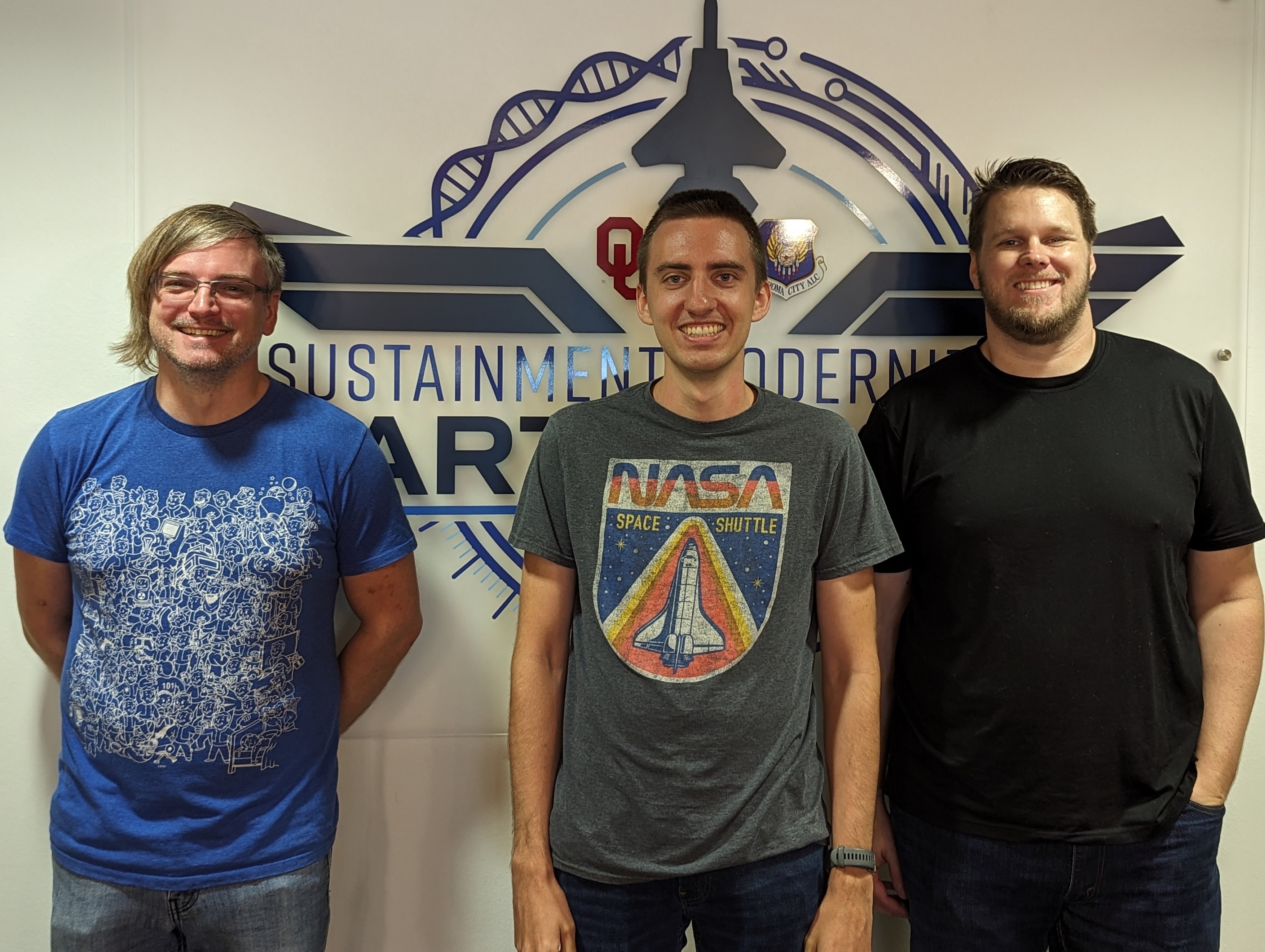
Department 70 Researchers Present at 2024 IEEE Radar Conference
By
On May 7 to 9th, Department 70 researchers Alex Stringer, Timothy Sharp, and Geoffrey Dolinger presented a research paper at the 2024 IEEE Radar Conference in Denver, Colorado. Their paper was titled “Application of Generative Machine Learning for Adaptive Detection with Limited Sample Support.” The research effort was led by Alex Stringer in pursuit of his PhD studies. Additional contributions were made by Timothy Sharp (76 SWEG/MXDE), Geoffrey Dolinger (76 SWEG/MXDE), Steven Howell (76 SWEG/MXDE), Joseph Karch (76 SWEG/MXDE), Dr. Justin G. Metcalf (University of Oklahoma), and Adam Bowersox (76 SWEG/MXDE).
Radar detection technologies depend on filtering out noise from target signal returns. Historically, this noise has been modeled using Gaussian distributions. However, more modern radar systems are often used on mobile platforms in complex clutter scenarios. The clutter in these scenarios must be modeled as correlated, non-Gaussian distributions. In order to effectively operate in these scenarios, radar samples must be decorrelated using filters that are represented by an inverse clutter covariance matrix (ICM). In many radar systems, determining the radar clutter distribution is accomplished through sampling the environment and estimating the ICM. This is costly both in time and resources. The method proposed by Alex Stringer seeks to reduce the cost of decorrelating samples by using generative machine learning methods to directly create ICMs. His testing showed that the generative methods produced ICMs that were far more similar to the ideal than traditional estimation methods using less support data. Additionally, when used in simulated radar detectors, the generative ICMs performed as well as estimated ICMs. Department 70 would like to recognize the contributions of the late Steven Howell in producing this work. Steven was an Oklahoma State University student who worked as an intern during the summer of 2023. He was instrumental in implementing the code and brainstorming ideas. His sharp mind and friendly demeanor made a deep impact on Department 70, and he will be missed.
Department 70 is the applied research team for the 76 SWEG. This team is dedicated to conducting basic and applied research in emerging technologies to develop organic government expertise for Air Force customers. The team partners with local universities to facilitate research opportunities that are aligned with the Air Force Science and Technology Strategy and 76 SWEG strategic objectives. The collaborative research conducted with these academic partners has produced a range of journal and conference publications. These publications are generated in support of the 76 SWEG educational programs that are funding internal Master’s and PhD students. Department 70 operates out of the Two Partners Place facility on the University of Oklahoma’s (OU) campus. This strategic proximity to OU fosters a dynamic exchange of ideas and promotes innovation within academic and military spheres.